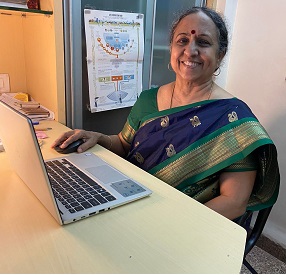A few years ago a colleague told us a story. She and her relative had a joint bank account. Once when she went to deposit a cheque of her relative’s, the bank told her that the latter’s name did not exist in the account! Our colleague happened to have an old pay in slip with the relative’s name and showed it to the clerk. The clerk did not know how to handle this, and asked a senior official for help. The senior had worked for the bank in the days of manual operations. He figured out what could have been wrong in the bank’s database, got it corrected, and solved the problem. We guessed that the clerk had joined the bank after automation was introduced and was trained accordingly. And we wondered, isn’t enough background knowledge being provided in the training? We were not sure
Coming to the medical domain, I have heard discussions:
Scenario 1 – Artificial intelligence in Radiology.
In a Radiology event there was a good demo of a product which used AI for radiological diagnosis. The inevitable happened – questions popped up about the need for Radiologists. And the person who did the demo said – “We will need Radiologists for long – a) to use our product as an aid to diagnoses and b) to keep giving us more inputs to make our product better”
Scenario 2 – CDSS systems (Clinical Decision Support Systems)
These again use AI and if a doctor feeds in several details of a patient, the system searches across several resources and the hospitals’ medical records (if integrated) and suggests different possible diagnoses for the patient. But it is again the doctor who will finally make the diagnosis. The system aids in the process.
Scenario 3 – Evidence based practice
Involves searching online to find the “best available evidence” and then using the clinician’s knowledge base to treat the patient. Many call this as “cook book medicine”, because they forget the important component – the clinician’s knowledge base being combined in the process!
And now, I would like to comment on the process of Literature Searching & Referencing
We need people to have the understanding of information resources and how they work. They also need to have the knowledge about Referencing and what Reference Managers do for them. While such databases and apps save a lot of time, in the absence of the knowledge of how they work, the “perceived instant gratification” really may not be time saving. Imagine getting 4357 results when the real results should be 416 only. Or getting 165 when the real results should be 587. Either way when questioned later, a researcher has to spend lots more time correcting the wrong research.
If automation should work well for humans, it calls for more and more of incorporation of best knowledge and methods.





